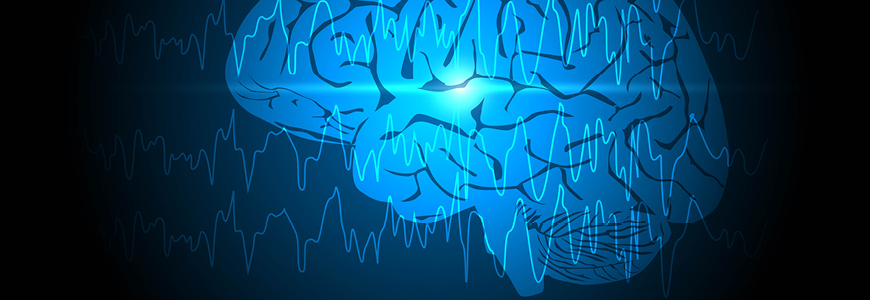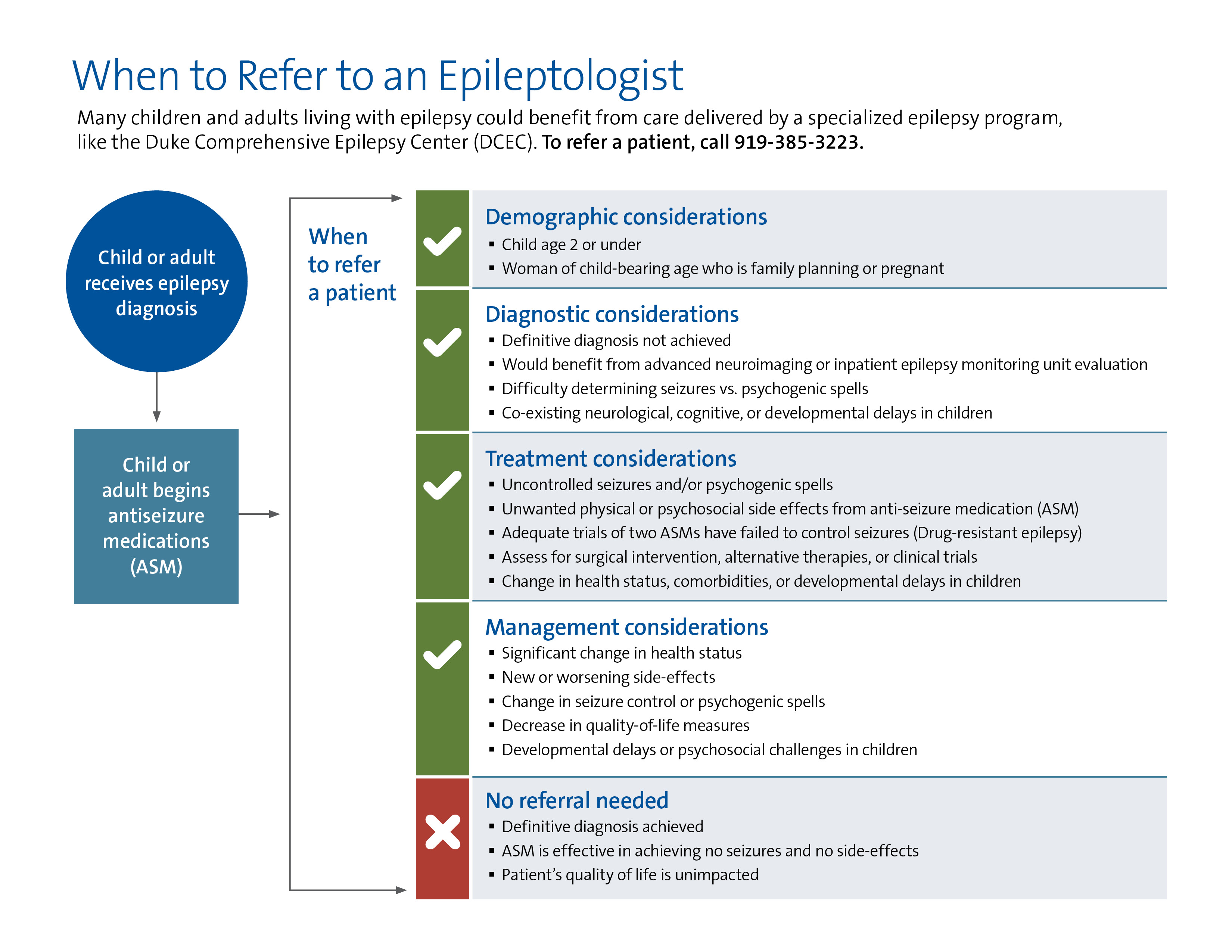According epileptologist Aatif M. Husain, MD, many adults and children living with epilepsy could benefit from care delivered by a specialized epilepsy program, like the Duke Comprehensive Epilepsy Center (DCEC). “Adults and children in Wake County have access to highly specialized epilepsy care through diagnosis, treatment, and long-term management,” says Husain.
Birgit Frauscher, MD, epileptologist and director of the DCEC, adds, “When it comes to surgical options for epilepsy, our center offers every option, including neuromodulation, resection, and ablation. We also have subspecialty care for specific populations and all ages, offering patients continuous care from childhood through adulthood.”
However, several barriers prevent patients from getting the care they need.
To refer a patient to an epileptologist, call 919-385-3223.

To refer a patient to Duke's Epilepsy Center, call 919-385-3223.
Expanding knowledge, access
“Sometimes, the status quo keeps patients from seeking advanced care for their epilepsy,” says Husain. “Patients often live with side effects from their condition or medications, thinking that there are no other options. They may not realize that they qualify for different treatments.” Sometimes, primary care teams don’t realize that a designated epilepsy center could benefit their patients. “Each patient’s epilepsy is unique, so it can be challenging to know which patients to refer for a higher level of care,” says Husain.
“One benefit of our center is that we are engaged in translational research. We are on the forefront of the latest treatments to improve patient care,” says Frauscher. Patients might not realize that their condition has changed, or that they should be reevaluated to assess if they are good candidates for new medications or procedures that we offer.” One common misconception is that a referral to an epilepsy center commits a patient to neurosurgery. “There are many treatment options for patients — surgery may be one of them, but we can often achieve great outcomes with medication or noninvasive procedures,” says Husain.
Frauscher adds that another barrier is waiting too long for surgery if it’s indicated. “There’s a trend to go for surgery earlier rather than later for certain types of epilepsy. Because epilepsy is a brain network disease, waiting can make surgery more complex and outcomes less favorable.”
Diagnostic, treatment challenges
Some conditions mimic epilepsy, making it challenging to diagnose. For example, psychogenic nonepileptic spells are common and can present like seizures; however, they require a very different treatment. Misdiagnosis of spells as seizures, or vice versa, could lead to inappropriate and ineffective treatment.
Antiseizure medication (ASM) is often the first line of treatment, though only 60-70% of people with epilepsy will have control of seizures with one or two ASMs with acceptable side effects. Drug-resistant epilepsy (DRE) is diagnosable when seizures are not fully controlled after a trial of two appropriately selected ASMs given in correct doses with tolerable side effects.
“Drug-resistant epilepsy is dangerous,” says Frauscher. DRE has a significantly higher morbidity and five to 10 times higher mortality compared to general populations. “Earlier intervention is best.”
An additional challenge can be managing comorbidities. “As a specialized epilepsy center, we have subspecialists to collaborate with on managing patients with comorbidities such as depression or insomnia,” says Frauscher. “Medications to treat other conditions can interact with antiseizure medications, or worsen side effects, so we have to look at the patient’s treatment plan holistically.”
No seizure, no side-effects goal
People with suspected epilepsy need to get an appropriate diagnosis and treatment plan as soon as possible, because seizures can cause serious harm, such as injury, neurologic damage, and psychosocial consequences. “We aim for the ‘no seizure, no side-effect’ goal while preserving patients’ health and function,” says Husain.
Once a referral is made to the program, Husain, Frauscher, and the team prioritize getting patients evaluated quickly. “Epilepsy is a long-term condition, but we want to help patients resolve uncontrolled seizures or unwanted side-effects as soon as possible.”
Epilepsy can present with nuances that require a higher level of diagnosis, treatment, and monitoring, says Husain. “We want to work with local primary care providers, pediatricians, and community neurologists to help their patients achieve the best outcomes and quality of life — when you refer to the epilepsy center, we’ll collaborate as a team."
